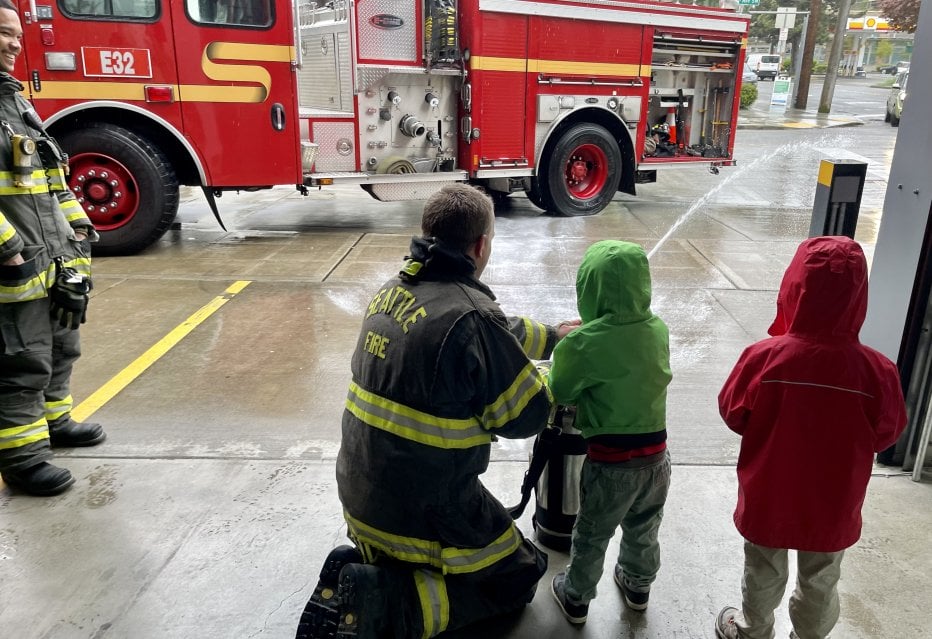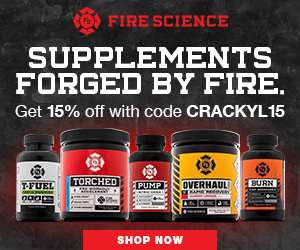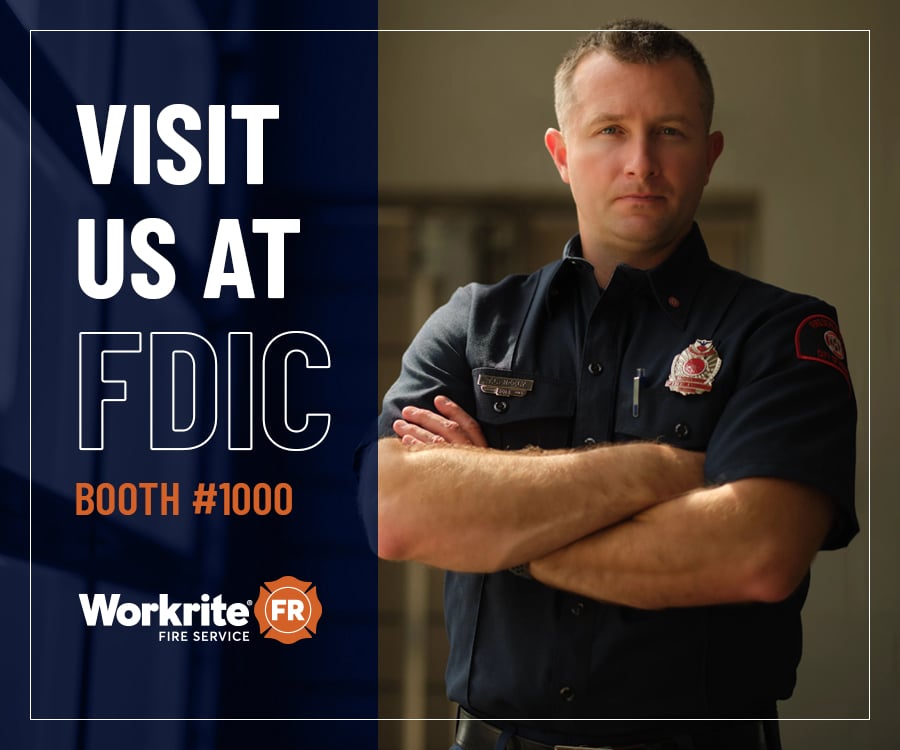Anchoring Into What Matters (From Behind the Line S1E4)

By: Lindsay Faas M.A., RCC Clinical Counsellor & Director of ThriveLife Counselling & Wellness
There was a time a couple of years ago when my kids got curious about our family traditions. They started out asking about Christmas traditions, and we talked about the various traditions our family has incorporated over the years, like filling and opening our homemade advent calendars, going out to cut down our own Christmas tree, the music we choose when we decorate the tree… Through these conversations, I realized how much we have built over the years, and how these highlight what we value about the season.
Since our conversations began, they have continued to evolve and we are now talking more and more about the small traditions. The everyday traditions. The silly things our family does day-to-day. Things like asking one another about how our day was and not allowing for simple answers like “fine”; talking around the dinner table and not letting the TV be on; reading books together each night; and laying in bed to talk about big life questions (“bed chats” as my kids call them).
As these conversations have unfolded, I have been increasingly aware of how these traditions, big and small, help me to anchor. What do I mean by anchor? Well, to me, anchoring means feeling a bit of stability and security even in the midst of bumpy waters. A sense of being connected to something that is strong and sure. And when I think about these daily, seasonal, and significant life event traditions, I realize that they are part of what builds that for me. To some extent, it’s the routine and the predictability that feels meaningful. That I can trust and know that I can expect specific parts of my day to happen and that we are working together to make these things happen because we collectively value them.
All of this has had me thinking more about how we anchor and what we choose to anchor to. I mean, we can try to anchor to all kinds of things. If you think about a boat trying to anchor, there are all kinds of surfaces that an anchor can try to grip – but some are going to be more effective than others.
One of the mistakes I see for a lot of First Responders and Front Line Workers is anchoring too much into the work itself. This happens often, and it makes sense that it does because, at the heart of it, the work is good. The work is associated with all kinds of positive things – being a helper, making a difference, and risking and sacrificing oneself to support others. Perceptually the work is honorable and demands humility and self-sacrifice – all things that our culture praises and values. The work can also feel like it fits our interests of caring for others, helping others, solving problems, making a difference, and so on. And to some extent, all of these things are true.
Now let me say that finding a sense of meaning in your work is a good thing. Meanwhile, the challenge for First Responders and Front Line Workers is that the work is complex, and while aspects of the work provide a sense of meaning and significance, other aspects drain the life out of you. I remember speaking with a veterinarian who summarized this well. He talked about how veterinarians go into the job because it is in alignment with their love for animals and their desire to experience meaning by helping animals. But the work they end up spending a significant amount of time euthanizing animals, not due to fatal illness but due to the owner’s choice to not fund more expensive ongoing treatments. The job ends up becoming emotionally and psychologically draining because the high-frequency tasks are fundamentally at odds with the heart going into the work and the sense of meaning/purpose attached to the work.
Similarly, in first response and frontline work, the heart going into the work, the sense of passion and purpose, is often at odds with the work itself over time. Yes, you get to make a difference, yes you get to help people, and yes what you do is incredibly important. However, the persistent weight of systemic and individual limitations to helping can create disillusionment and jadedness.
The demands of the job are so incredibly high that you tend not to have a lot of time to step back a moment and think about how you’re making meaning of the work you do. You might often look at others at work who you perceive as jaded and burnt out and think, “God I hope I am never like that!” and yet you will tend to fail to see the warning signs that you are on the same slippery slope because it’s gradual and subconscious and the nature of the work and life is such that if we don’t make the time to step back and see it for what it is, we will fail to see it until we are so far down the hole that it feels impossible to get back out.
There are two specific pieces I would argue are connected to being intentional and strategic when it comes to how we identify with the work and the meaning it has for our lives (i.e., anchoring).
First, when you do anchor into the work, anchor into it well. What I mean by this, is take time to step back from the tasks, the limits, the challenges, the yucky stuff, and allow yourself to anchor into the meaning it has for you and what it means about you that you continue to be in the work. I know that in my work, it can be easy to get caught up in feeling like a session went a bit sideways, the number of phone calls I didn’t get a chance to return, the weight of a specific story that was shared that day or my confidence in the outcomes of a suicide risk assessment. That stuff can cloud my ability to stay connected to why any of it matters, and if I hurry through my day and then race home, I will carry the weight of all of this with me without any of the protective factors of being anchored to the meaning of it all.
I have a routine in my day, a tradition if you will, of taking a few breaths at the end of my day before I head to my car to go home. I take a few breaths and I remind myself that I love my work. I love being allowed into the lives of my clients. I am honored by their willingness to let me come alongside them. I work at connecting to that part of me that chose this career so many years ago and that wanted to make the world a better place for just one person at a time, and I try to focus on ways that I was able to engage with that goal on any given day.
I haven’t always taken this pause at the end of my day. I used to race home and launch myself into the next thing and the next thing and the next thing, and then I would wake up the next day and do it all over again. And you know what I can tell you about that time in my life? It is the deepest burnout I have ever run.
It was early in my career and I wasn’t given the tools to know what was happening or how to change it. The reality was that, because I cared deeply about my work, I believed that my work was incredibly important, and I found significant personal meaning in it – when hard days happened, which they were bound to when working at that time with sexual assault and domestic violence survivors struggling largely with PTSD, it felt like it sunk me. Their struggles became markers of my success or failure, and it was way too much.
I’m not going to suggest that I have never tended toward burnout since then. I find for myself, those I know and those I work with, managing the risk for burnout is a tenuous balancing act that has some ebb and flow. But let me tell you, that pause at the end of each day is a lifeline for me. It is the space where I can look at where I’m at and get a sense of where I am in that ebb and flow. It lets me spot any early signs that I’m moving toward something less healthy and allows me to make some pivots back toward my strategic action plan, or to change up my action plan a bit to be responsive to new or changing stressors.
The second piece I would suggest about anchoring is not letting the work be the exclusive source of meaning. Now this might seem obvious, and yet a lot of people seem to really struggle to implement this. I think this is because when we’re in the work, yes it is chaotic and crazy, but it is also familiar. And often, we are surrounded by a team of colleagues who are like family and in it with us. We know who we are when we’re at work. We know who and how we are supposed to be.
There is a sense of stability in the instability – a sense of predictability in the chaos, and it can absorb us. What this can look like is going home at the end of the day or being in public settings in your personal life and strangely craving being back at work where you know where and how you fit.
I’ve had moments like these. Moments where my kids are asking to play something that feels outside of my wheelhouse, and I have this internal pull to go do some work to place myself in something that feels familiar, and where I know what is expected of me and I know I can meet those expectations with success. Can you think of some moments that have felt like this for you? Parties you’ve been at where you have no idea what to say or how to carry on “normal” conversation? Interactions in daily life where it feels like you don’t know how to be “normal”? Or not knowing what to do with yourself when you have some downtime?
We have to be careful. The work you do is important, without a doubt, but when you make it an exclusive source of meaning, you are entering a precarious space where the likelihood of burnout rises exponentially and where your general capacity to experience life satisfaction decreases significantly.
You know when you go to the bank to discuss investing, they talk about diversifying your portfolio? It means putting a little bit in a lot of different places in an effort to balance out the volatility of the market. Life is like this. We have to diversify our portfolio when it comes to how we make meaning of ourselves and our world in an effort to balance out the volatility that life is filled with. Work can be one part of our meaning-making portfolio, but it cannot and should not ever be the only one. Investing energy thoughtfully and intentionally into other areas where you can find meaning in your life is a game changer in creating sustainable wellness.
Some ideas for areas to pour into can include: investing in family and friends and being intentional about how you show up with and experience enjoyment and meaning from your family time; investing in hobbies, sports, or interests that provide a sense of enjoyment, connection and meaning; investing in volunteerism, social justice initiatives or other areas where you can lean into a sense of meaning; and seeking out a side-hustle that feels in alignment with your interests.
I know several First Responders who spend their days off doing a second job that has nothing to do with frontline work, such as baking and decorating cakes or doing custom woodworking projects. Several of my frontline worker friends volunteer in community event planning, athletics, or other areas of personal interest. These activities can add stress in their own unique ways, but they also offer a breadth of experience and exposure to life that helps to balance out some of the burdens of the work you do.
As you sit with the idea of anchoring, I want to encourage you to think about your own family traditions. Whether it be holiday traditions, significant life event traditions, or the traditions of daily living – think about what those traditions say about you and your family. What do these traditions say about what you collectively choose to value and prioritize? I wonder what ways you might create or hone some traditions, personally or as a family, that would help you anchor well into your work and anchor well outside of your work too.
I’m also going to invite you to take and adapt the end-of-the-day pause that I shared earlier. At the end of your work day, before you race for home, take a minute. In your office or station, in your car, or wherever you can find that is quiet, take a few breaths, reflect on your day, and get curious about some of your needs to anchor back to what matters to you.
Find the full episode of Behind the Line, Season 1, Episode 4 on our website, YouTube, or wherever you listen to podcasts. Check out our free Beating the Breaking Point Indicators Checklist & Triage Guide, where you can self-assess burnout and related concerns and get guidance on your strategic action plan for wellness.
Photo by Stephen Baer
Podcast
Contests & Promotions
















